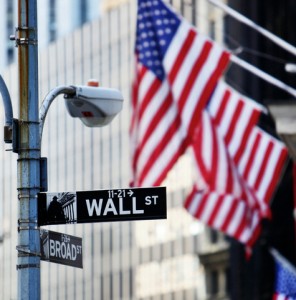08 Sep FINANCIAL REFORM ROLLS OUT
 Much is Hazy About the Dodd-Frank Bill, Even Though it has Passed.
Much is Hazy About the Dodd-Frank Bill, Even Though it has Passed.
Will the goals of the reform bill really be met? On July 15, the Dodd-Frank Wall Street Reform and Consumer Protection Act passed 60-39 in the Senate. Next week, President Obama is expected to sign it into law.1
“Because of this reform, the American people will never again be asked to foot the bill for Wall Street’s mistakes,” the President said in mid-July. “There will be no more taxpayer-funded bailouts, period.”
Will his words prove true? Some doubt it, while the bill’s adherents think this is a great and necessary step to prevent another Wall Street crisis.
However, the step is still being taken – it remains to be seen how the reforms passed will be implemented, and some may be implemented to a lesser degree than intended. (And there is nothing about Fannie Mae or Freddie Mac in the 2,300 pages of legislation.)
Goal 1: No replay of TARP. In brief, the bill gives federal regulators added power to ward off possible bank collapses. In the near future, these regulators could make too-big-to-fail determinations, set bank capital ratios and ceilings on financial industry CEO compensation, and rule on the types of proprietary investments allowable for banks. The idea is keep financial giants from turning into houses of cards. However, conservatives warn that too much regulation could prompt U.S. financial firms to conduct increasing amounts of business in nations with less-regulated financial markets.2
One of the most vocal opponents of the bill was House Minority Leader John A. Boehner (R-OH), who likened the legislation to “killing an ant with a nuclear weapon.” Boehner thinks that the bill “institutionalizes” the too-big-to-fail notion.1 Other conservatives agree and think that the federal government might keep the bailout option around for big banks when it should be throwing it away.
Goal 2: Consumer education and protection. The bill creates a Consumer Financial Protection Agency within the Federal Reserve – a new bureau to watch over mortgage lenders, credit card companies and consumer banking practices. The idea is to prevent things like “liar loans” and specious fees. Detractors think the CFPA and its regulations will actually bear a negative byproduct – they think businesses and individuals will have a tougher time getting credit. How big a reach will the CFPA have? How much autonomy will it have? That hasn’t been defined.
Goal 3: Transparent derivatives trading. Most of the trading in the derivatives market happens out of the public eye. No more, according to this reform bill: it will take place on public exchanges, the better to pinpoint systemic risks. Almost everyone applauds this measure.2
Goal 4: Identifying bubbles. No just stock or commodity bubbles, but also real estate bubbles and bubbles in any economic sector. A new agency, the Financial Stability Oversight Council, will seek to find them. No one knows its regulatory scope yet.2
Goal 5: Double-checking credit ratings. Why did Wall Street fall in love with derivatives? Didn’t the credit ratings agencies warn banks about the peril of such investments? Allegedly not. So an Office of Credit Ratings will be created as part of the Securities & Exchange Commission. The OCR will monitor the big Wall Street credit ratings firms and watch out for possible conflicts of interest affecting ratings.3
Interesting minutiae. When President Obama signs off on the Dodd-Frank bill, it will kill the Office of Thrift Supervision – that’s the office that was supposed to prevent bank collapses. As we can tell by the failure of Washington Mutual and IndyMac, the “supervision” may not have been all that focused. The Office of the Comptroller of the Currency will pick up its duties. (The Dodd-Frank bill also has a nice wrinkle for former IndyMac accountholders: it boosts the FDIC coverage on those accounts to $250,000, retroactive to before IndyMac went bust.)1
Another consequence of the Dodd-Frank bill: all TARP payments will end immediately. And don’t look for a new futures market in the offing based on Hollywood box office receipts – the big movie studios wanted to try and make that a reality, but the reform bill won’t allow it.1
Kevin M. Nast is a Financial Advisor and the President of NastGroup Financial in Northville, MI 48167. He may be reached at nastgroupfinancial.com or 248.347.1888. Kevin also services clients in South Lyon, Westland, Northville, Plymouth, Belleville and the surrounding metro Detroit area as well as 13 additional states across the US.
This material was prepared by Peter Montoya Inc., and does not necessarily represent the views of the presenting Representative or the Representative’s Broker/Dealer. This information should not be construed as investment advice. Neither the named Representative nor Broker/Dealer gives tax or legal advice. All information is believed to be from reliable sources; however, we make no representation as to its completeness or accuracy. The publisher is not engaged in rendering legal, accounting or other professional services. If other expert assistance is needed, the reader is advised to engage the services of a competent professional. Please consult your Financial Advisor for further information.. www.petermontoya.com, www.montoyaregistry.com, www.marketinglibrary.net
LD37613-07/10
Citations
1 – latimes.com [7/16/10]
2 – articles.moneycentral.msn.com [7/15/10]
3 –abcnews.go.com [6/25/10]




Sorry, the comment form is closed at this time.